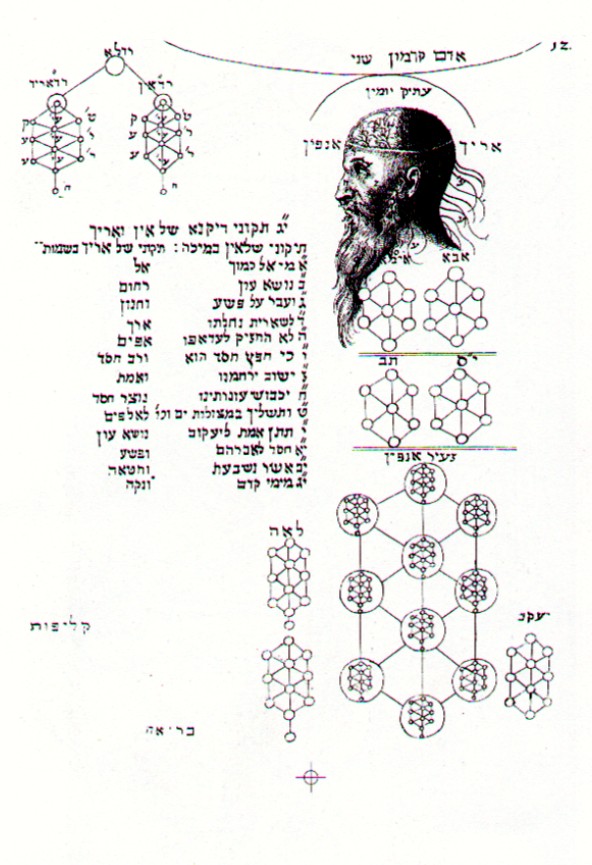The Sages state that it is "only at the age of 40 that the disciple is fit to understand properly the thought of his master," for "40 years is the age of wisdom." That is why, in general, the kabbalists prefer to "transmit" their teaching to disciples who are at least 40 years old. In their opinion, at that age the human soul becomes spiritually mature. The Hebrew word 'neshamah,' soul, confirms this; the letters which compose it also make up the words 'mem shanah,' 40 years.
For many years, I've had a non-interest in the study of Kabbalah. I'm not very into mysticism, and if you've read this blog before, you know I'm a skeptic. I don't believe in the supernatural, and I'm a follower of Dawkins, Hitchens and Harris. Theodicy -- why bad things happen to good people -- has always been a stumbling block for me and the answers religion offers just don't satisfy.
I've also, for many years, used the convenient excuse that the study of kabbalah is restricted to those 40 and over. Yeah. That excuse fell by the wayside recently. 40 I now is.
So when our rabbi announced that he was offering a new class on kabbalah, I decided to sign up. I love studying with our rabbi, and I get out of the house every Tuesday night to spend time with other adults, learning something. Besdies, with a title like: Kabbalah: Hidden Truths: The Earth-Shattering Kabbalah of R'Chayyim Vital and R'Nachman of Bratslav, how could I resist?
It's Just Like I Expected
We spent the evening studying the personal journal of Chayyim Vital, a kabbalist and student of Isaac Luria from the late 16th century (WIki here:) and reviewing and dissecting the various levels of Souls, Mystical Worlds, Sefirot, Partzufim, etc. The graphic below makes it entirely clear.
All the four worlds are contained in each of the five levels of the soul, and each of the partzufim are contained in each of the four worlds which are contained in each of the the five levels of the soul. To move up in soul levels from lowest to highest, you have to rectify/integrate all of the levels of all of the other parts. Again, a simple visual explanation:
Moving up each of these levels moves you closer to The One (God), until you are about as close to God as a human being can get.
Fellow classmate Peter said it was like becoming a Jedi. I kept think of Pokemon (thanks, 10-year-old son) and how they evolve from one stage to the next. Also Angry Birds, where to progress to the next level you have to complete all the puzzles of the previous level. In the Soul Game, however, you'd have to complete all the levels with 5 stars, no exceptions. And if you fail a level, you may have to go back to the beginning. With reincarnation -- yup, Jewish reincarnation -- this becomes a long, long process.
For those like me who are pretty darn sure souls don't even exist, these mental gymnastics about it seem like a waste. Reading the journal of Vital is like reading the scribblings of a man suffering from delusions of grandeur. Everyone he meets is a fortune teller who tells him how great he is -- the greatest in his generation. His belief system -- all of this soul-raising -- must feed on the self-centerdness.
Why, asks the woman of logic and science, do you all have to make things so complicated?
It's Not Like I Expected
Sometimes I forget the benefits of being an adult student in a completely optional, taking-it-for-fun class. While I am there to learn, I am also there to learn on my own terms and take from the material what I want -- and that might be very different from what's being offered.
As we discussed last night, there is no such thing as a direct transmission of knowledge or ideas from teacher to student. We all have our own perspective and our own interpretive frame from which we cannot escape. What Isaac Luria transmitted to Chayyim Vital; what Rabbi Ben teaches me; perhaps even what God transmitted to Moses... all of the students put their own spin on things.
Vital interprets Luria
Moses interprets God (oooh, that's a whole other blog post there...)
Susan interprets Rabbi Ben, who interprets Vital, who is interpreting Luria, etc.
I get my own spin, too.
- As a study of Jewish history, kabbalah certainly offers some of the more interesting characters. Vital is annoying, but fascinating, and how many other journals from the late 1500s have I read? About zero.
- I'm fascinated by the ways people rationalize their supernatural beliefs, and these guys are experts. Why is casting magic spells and making amulets prohibited in Vital's time? Because we don't have the ashes of the red heifer, of course. Sorry.
- Even something like kabbalah can be dangerous. I was disturbed by the connection made between ailments of the body and the mystical belief that it's connected, somehow, to the way your soul-work is going, etc. What a terrible burden to put onto people for their physical ailments. You're in pain? You must not be doing X, Y, Z in the spiritual realm correctly. Pshah.
- The underlying message -- when you strip away all of the religious layers, may still be relevant. I'm working on this one, but a little self-awareness can be healthy, and kabbalah seems to be saying the same thing as Shrek -- we're like onions. Or, if you prefer Donkey, like parfaits. We all have layers. Call them soul layers if you're religious, or psychological layers if you're not, but we've all got them. Why not explore them?
Besides, how could I not love a class where Jedis, Stargate, holograms, holodecks, mind-enhancing drugs and pissing in the temple courtyard all came up for discussion.

